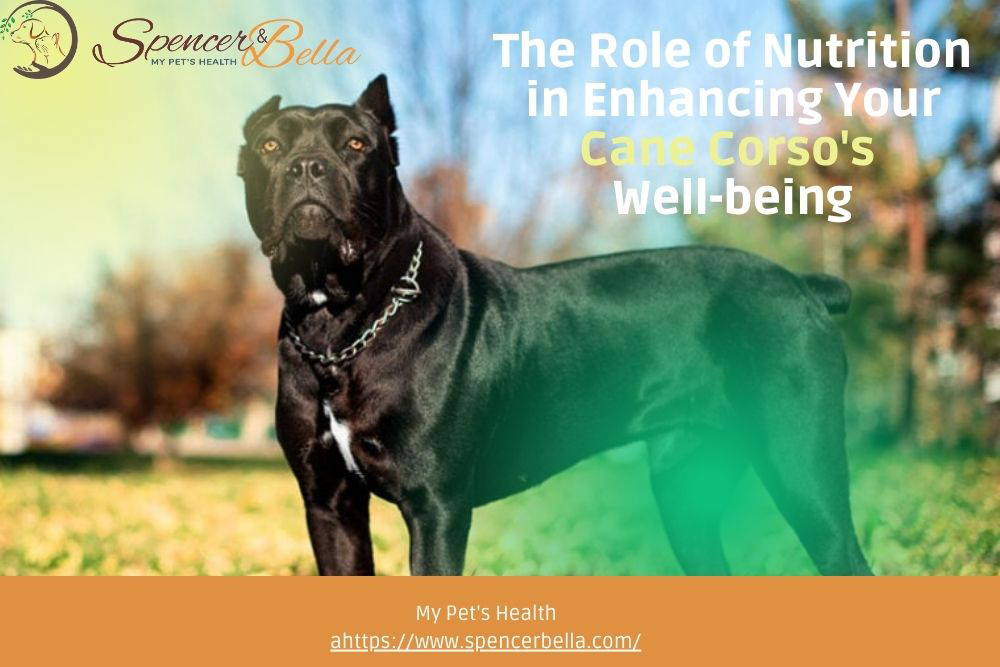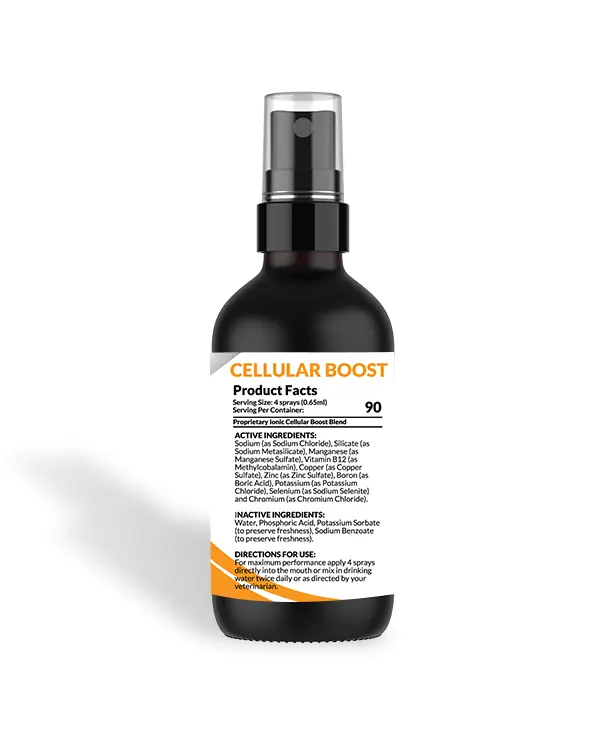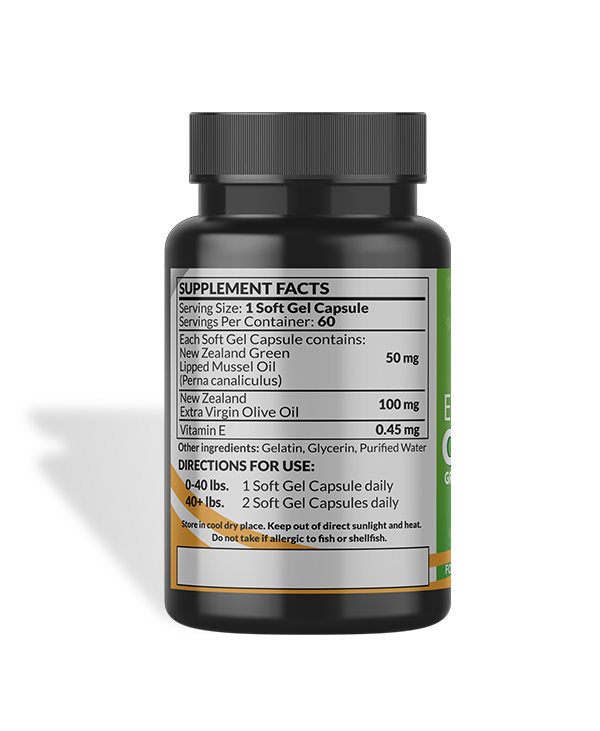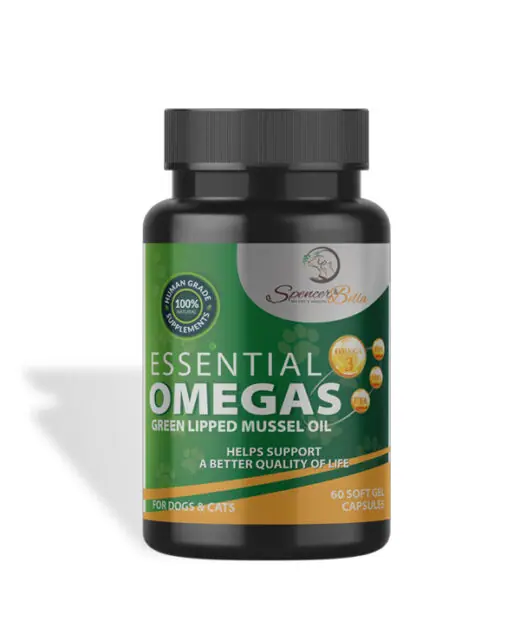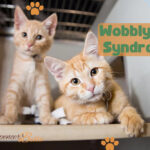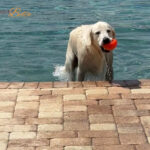Originating from Italy, the Cane Corso, also recognized as the Italian Mastiff, is a large and formidable dog breed, esteemed for its size and strength. With its robust and muscular build, square-shaped head, broad chest, and deep muzzle, the Cane Corso exhibits a striking and impressive appearance. This breed’s physical characteristics, combined with its alert and confident temperament, make it an ideal choice for those seeking a loyal and protective companion. This comprehensive guide will cover Cane Corso Health, health risks and its treatment.
The Corso’s linage goes back to ancient Roman times: their name translates from Latin to mean “Bodyguard Dog”. In addition to their physical attributes, Cani Corsi are highly intelligent and trainable. However, it is important to provide them with early socialization and consistent, positive reinforcement training methods. With the right handling and care, Cani Corsi can develop into well-behaved and obedient pets, showcasing their intelligence and willingness to learn.
The Cane Corso’s popularity as a breed stem from its versatility and adaptability. Their inherent loyalty and natural guarding instincts make them excellent guard dogs, capable of protecting their families and property. At the same time, they can also be gentle and affectionate with their loved ones, including children.
The Cane Corso’s origins as an Italian Mastiff add to its allure, as it is a breed with a rich history and lineage. People are drawn to the heritage and legacy associated with this magnificent breed.
Overall, the Cane Corso’s combination of impressive physical attributes, alert temperament, intelligence, and adaptability contribute to its widespread popularity as both a loyal companion and a dependable guardian. Whether it is their role as a protective and devoted family dog or their history as an Italian Mastiff, the Cane Corso continues to captivate the hearts of dog enthusiasts worldwide.
Cane Corso Health Issues
However, like all dog breeds, Cane Corso’s are not exempt from certain health issues. Prospective owners should be aware of these potential concerns and remain vigilant for any signs or symptoms that may arise. While Cane Corso’s are a strong and healthy breed, they can be susceptible to specific health conditions. Common health issues in Cane Corso’s include:
Joint Problems and Hip Dysplasia:
Its a common Cane Corso Health issue. Large and athletic breeds like the Cane Corso are at risk of developing joint issues, including hip dysplasia. This painful skeletal disorder is more frequent in big dogs and can affect Cane Corso’s of all ages, potentially leading to the development of osteoarthritis.
Symptoms
Recognizing the symptoms of Cane Corso hip Dysplasia is crucial in providing appropriate care and treatment. Watch for signs such as the dog’s unwillingness to exercise, a restricted range of motion, stiffness, twisted hind legs, difficulty jumping, sprinting, or climbing stairs, gait irregularity, muscle atrophy in the back legs, and front shoulder muscular growth to compensate for weak hind legs.
Treatment
Treatment options for hip dysplasia in Cane Corso’s vary depending on the severity of the condition. Non-surgical approaches may include weight loss diets to reduce strain on the joints, restricted exercise on hard surfaces, joint supplements to support joint health, and the use of anti-inflammatory medications to alleviate discomfort.
In more severe cases, we may consider surgical interventions. We select a specific procedure depending on the age of the dog. We perform a double pelvic osteotomy (DPO) on dogs under ten months old. This procedure involves cutting the pelvic bone to improve mobility. Another option is a femoral head ostectomy (FHO), where we remove the hip joint ball to reduce friction and pain. We can perform this procedure on both young and old dogs. We reserve total hip replacement (THR) for fully mature canines. It involves replacing the entire hip joint with a metal implant to restore proper movement.
If you suspect your Cane Corso health may be experiencing hip dysplasia, it is important to consult with a veterinarian for a proper diagnosis and to discuss the best course of action. They will be able to evaluate the severity of the condition and recommend appropriate treatment options tailored to your dog’s specific needs.
Spencer Bella’s Super Food
Our SUPERFOOD “Human Grade” High Potency All-Natural Supplement helps reduce inflammation in all parts of the body and supports all systems in the body including digestion, hip and joint, skin and coat, circulatory system, and immune system.
Read our blog about the benefits of Cellular Boost daily for your cats and dogs.
-
Cellular BOOST
$35.00 - or Subscribe and Save 10% -
Cellular BOOST & Essential OMEGAS Bundle
$84.00 - or Subscribe and Save 10% -
Essential OMEGAS
$49.00 - or Subscribe and Save 10%
Stomach Issues and Sensitive Digestion:
Another commonly found Cane Corso Health issue is sensitive digestion. Cane Corso’s may have sensitive stomachs, making them prone to digestive problems such as diarrhea, vomiting, or food intolerances. It is important to note that in addition to these common stomach issues, Cane Corso’s are also at risk of a serious condition called bloat, or Gastric Dilatation-Volvulus (GDV).
Bloat is a disease in which a dog’s stomach fills with air or fluid and twists, causing severe complications. While it is not related to sensitive digestion, it is crucial to be aware of the symptoms and seek immediate veterinary care if you suspect bloat in your Cane Corso. The symptoms of bloat include a distended abdomen, pain in the lower abdomen, constipation, excessive drooling, difficulty standing, and heavy breathing.
Treatment
To address sensitive digestion and other stomach issues in Cane Corso’s, experts recommend feeding them high-quality, easily digestible dog food. You should look for specially formulated dog food that companies design for sensitive stomachs or that contain limited ingredients to minimize the risk of food intolerances. Additionally, it is advised to avoid dietary triggers, such as certain ingredients or additives, as they can also help alleviate stomach issues.
Pay attention to the symptoms of stomach issues in your Cane Corso, including chronic diarrhea, vomiting, excessive gas, bloating, and loss of appetite. If you notice any of these symptoms or suspect a more serious condition like bloat, it is important to consult with your veterinarian for proper diagnosis and treatment, because your beloved Cane Corso’s Health is important.
Breathing and Respiratory Problems:
The Cane Corso’s unique facial structure and short muzzle can contribute to breathing difficulties, such as brachycephalic airway syndrome. These dogs may experience snoring, snorting, or respiratory distress, especially during exertion or hot weather. Providing a cool and well-ventilated environment and avoiding excessive exercise in extreme conditions can help manage these issues. Observe for symptoms like loud snoring, wheezing, excessive panting, coughing, and difficulty breathing, especially during physical activity or in warm environments.
Eye Problems and Disorders:
Cane Corso’s may be predisposed to various eye problems, including entropion (inward rolling of the eyelid), ectropion (outward sagging of the eyelid), cherry eye (prolapse of the gland of the third eyelid), and certain hereditary conditions like progressive retinal atrophy (PRA). Regular eye examinations by a veterinarian are crucial for early detection and appropriate management of these conditions. Keep an eye out for symptoms like excessive tearing, redness, discharge, cloudiness, squinting, rubbing, or pawing at the eyes, and changes in vision or behavior.
Cherry Eye
Among the eye problems that can affect Cane Corso’s, cherry eye is a notable condition to be aware of. All dogs have third eyelids that house the nictitating gland responsible for tear production. In cherry eye, this gland prolapses, leading to the formation of a swollen, red mass in its place. While cherry eye is not inherently harmful, it can give rise to several complications. Exposing the eye to secondary infections and causing dry eye (keratoconjunctivitis sicca), cherry eye can potentially result in blindness, making it a significant Cane Corso health concern.
Symptoms
Recognizing the symptoms of cherry eye in Cane Corso’s is important for timely intervention. Look for a red oval swelling in the corner of the eye, excessive tearing, inflamed eye tissue, squinting, and the dog pawing its face or rubbing its paws on the carpet. If you notice these symptoms, consult a veterinarian promptly.
Treatment
The treatment of cherry eye typically involves antibiotics as an initial approach, but surgery is often necessary to address the condition effectively. There is some debate about the optimal surgical technique for treating cherry eye in larger dogs like the Cane Corso. One common method is “tacking,” where the swollen gland is stitched back into place. Another technique called “imbrication” involves placing tissue over the gland to hide it. Some breeders may opt for complete removal of the gland.
Each treatment approach has its pros and cons. Gland removal may result in chronically dry eyes that require lifelong care with eye drops, although many Cane Corso’s are already prone to dry eyes. If left untreated, dry eye can lead to blindness. Tacking is successful only about 25% of the time and may require repeat procedures. There is a risk of the stitching coming undone and potentially scratching the dog’s eye. Multiple tacking procedures can lead to facial disfigurement and increased discomfort for the Cane Corso.
Preventing cherry eye is challenging since it is a hereditary condition influenced by the dog’s lineage. However, when adopting a Cane Corso, you can ensure that prospective puppy parents have had their dog’s eyes tested by organizations like the Canine Eye Registry Foundation.
Eyelid Condition
In addition to cherry eye, Cane Corso’s are also prone to other eyelid conditions, such as entropion and ectropion. Entropion occurs when the eyelid rolls inward, causing the dog’s lashes to scratch the corner of the eye repeatedly. On the other hand, ectropion involves the outward sagging of the eyelid, which exposes the delicate lining to potential harm. Both entropion and ectropion can be inherited or acquired, with inherited cases stemming from genetics and acquired cases resulting from eye injuries.
Symptoms of entropion in Cane Corso’s include squinting, keeping the eye closed, inflamed eyelids, excessive tear production, and scratching the nose. In the case of ectropion, symptoms include sagging lower eyelids, inflamed eyelids, excessive tearing, and eye discharge that may discolor the fur around the eyes.
Both entropion and ectropion are commonly addressed through corrective surgeries that aim to address the rolling inward or outward of the eyelid by removing the affected portion.
If you notice any symptoms or abnormalities in your Cane Corso’s eyes, it is essential to seek veterinary attention for a thorough examination and appropriate treatment. Early detection and intervention can help manage eye problems and preserve your Cane Corso’s vision and overall eye health.
Skin Allergies, Irritations, and Other Dermatological Concerns:
Cane Corso Health concerns including skin allergies, irritation and dermatological are risky. Cane Corso’s may be prone to various skin allergies and irritations, which can manifest as itching, redness, and discomfort. In addition to allergies triggered by environmental factors like pollen or dust mites, there are other dermatological issues that can affect Cane Corso’s, including demodectic mange, skin fold dermatitis, deep pyoderma, elbow hygroma, and chin folliculitis. It is important for owners to be vigilant and proactive in managing these conditions.
To keep your Cane Corso’s skin healthy, regular grooming practices should be followed. This includes routine bathing with gentle, hypoallergenic shampoos and proper drying to prevent moisture buildup. Additionally, maintaining a balanced diet that meets their nutritional needs and avoids potential allergenic ingredients is crucial. Working closely with a veterinarian can help identify and address any underlying causes of skin allergies or irritations.
Proper Nutrition for Cane Corso’s: Meeting their Unique Dietary Needs
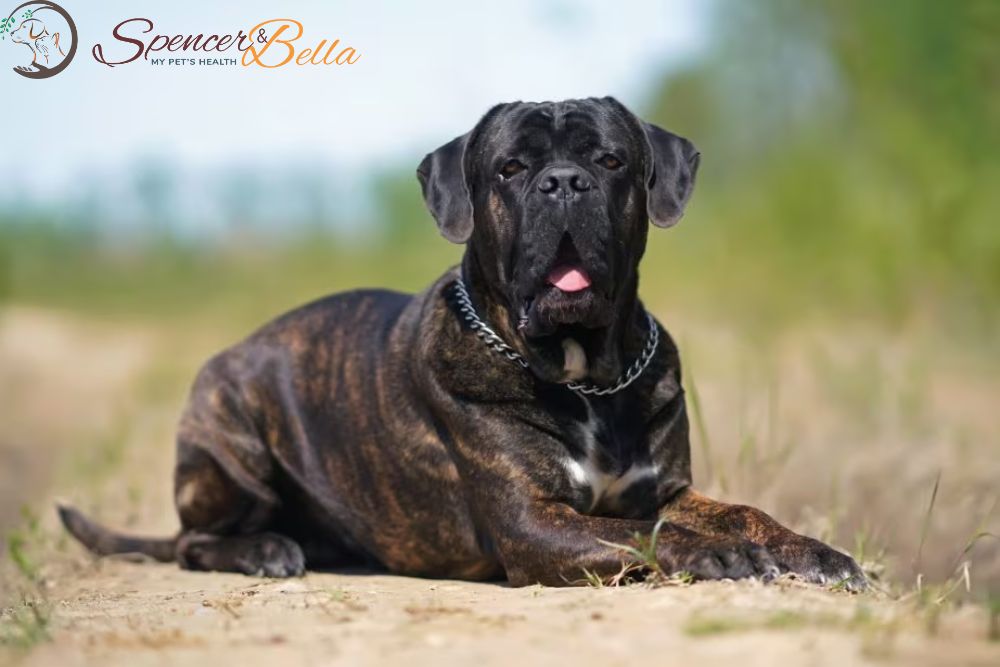
Nutrition plays a crucial role in the overall health and well-being of Cane Corso’s. Providing a balanced and nutritious diet is essential for promoting growth, maintaining a healthy weight, and supporting optimal health throughout their lives. Understanding their nutritional requirements and addressing specific dietary considerations, such as food allergies, sensitive stomachs, and the developmental needs of puppies, is key to ensuring their overall well-being.
1. Nutritional Requirements and Balanced Diet:
Cane Corso’s require a high-quality, balanced diet that provides essential nutrients, including proteins, carbohydrates, fats, vitamins, and minerals. Protein is particularly important for their muscle development and maintenance. Look for dog foods specifically formulated for large breed dogs or active breeds. Additionally, as they often contain the right balance of nutrients to support the needs of Cane Corso’s. Your veterinarian or a professional animal nutritionist can help you determine the appropriate portion sizes. Moreover, feeding frequency based on your dog’s age, weight, and activity level.
2. Food Allergies and Sensitivities:
Some Cane Corso’s may have food allergies or sensitivities, which can manifest as skin irritations, digestive issues, or other allergic reactions. Common food allergens include grains, beef, chicken, dairy products, and certain additives or preservatives. If you suspect your Cane Corso has food allergies, it is important to identify and eliminate the offending ingredients from their diet. Switching to a limited ingredient diet or a novel protein source, such as venison or duck, may be necessary. Working closely with a veterinarian or veterinary nutritionist can help determine the most appropriate diet for your dog’s specific needs.
3. Digestive Health and Sensitive Stomachs:
Cane Corso’s can be prone to sensitive stomachs and digestive issues. To promote digestive health, it is essential to provide a diet that is easily digestible and gentle on their stomachs. Look for dog food formulas that are formulated for sensitive stomachs or have ingredients such as easily digestible proteins and carbohydrates. Avoid sudden dietary changes and introduce new foods gradually to minimize the risk of gastrointestinal upset. Probiotics and digestive enzymes may also be beneficial in supporting digestive health in Cane Corso’s.
4. Puppy Diet Plan and Growth Requirements:
Puppies have unique nutritional requirements to support their growth and development. During the first few months of their lives, Cane Corso puppies require a diet that is rich in high-quality proteins. Additionally, essential fatty acids, vitamins, and minerals are most important. Commercial puppy food formulas that are specifically formulated for large breed puppies can provide the right balance of nutrients to support their skeletal growth without promoting excessive weight gain. Dividing their daily food intake into multiple small meals throughout the day can help prevent bloating and maintain stable blood sugar levels.
Know about German Shepherd Health.
The Raw Diet for Cane Corso’s: Exploring the Pros and Cons
The raw diet, also known as the “BARF” diet (Biologically Appropriate Raw Food), has gained popularity among dog owners. Moreover it is including those who own Cane Corso’s. Advocates of the raw diet believe that it closely mimics the natural diet of dogs’ wild ancestors. Moreover, it offers numerous health benefits. However, it is essential to carefully consider the pros and cons before deciding if a raw diet is suitable for your Cane Corso.
Pros of a Raw Diet:
Natural Nutritional Profile: Proponents of the raw diet argue that it provides a more natural nutritional profile for dogs. Raw diets typically consist of raw meat, bones, organs, and sometimes fruits and vegetables, aiming to replicate the diet of wild canines. This diet may provide a rich source of essential nutrients, including proteins, healthy fats, vitamins, and minerals.
Improved Digestion: Some dog owners report that their Cane Corso improved their digestion on a raw diet. It is believed that raw food is more easily digested and absorbed by dogs, potentially reducing the incidence of digestive issues such as bloating, gas, and diarrhea.
Dental Health Benefits: Raw meaty bones are often included in a raw diet, which can help naturally clean dogs’ teeth and promote dental health. Chewing on bones may remove plaque and tartar buildup, reducing the risk of dental diseases.
Cons of a Raw Diet:
Nutritional Imbalances: One of the main challenges of a raw diet is ensuring proper nutrition and avoiding nutritional imbalances. It can be difficult to achieve the right balance of essential nutrients, including calcium, phosphorus, and vitamins, without careful planning and supplementation. Imbalances in nutrients can lead to serious health issues over time.
Food Safety Concerns: Handling raw meat carries the risk of bacterial contamination, such as Salmonella or E. coli, which can pose health hazards for both dogs and humans. It is crucial to handle and store raw food properly to minimize the risk of foodborne illnesses.
Time and Preparation: Preparing a raw diet requires careful planning, sourcing high-quality ingredients, and proper storage. It can be time-consuming and may not be feasible for busy dog owners. Additionally, raw diets can be more expensive compared to commercial dog food.
Potential Cane Corso Health Risks: Feeding raw bones carries certain risks, such as tooth fractures and choking. Moreover, gastrointestinal obstructions if bones are swallowed whole. It is essential to supervise your Cane Corso while consuming raw bones. Additionally, choose appropriate-sized bones that are safe for chewing.
It is important to note that the decision to feed a raw diet should be made after thorough research. Additionally, consultation with a veterinarian or a professional animal nutritionist. They can help assess your Cane Corso’s individual needs and provide guidance on developing a balanced. Moreover, nutritionally complete raw diet plan, if appropriate.
Final Thoughts on Cane Corso Health
In conclusion, it is a remarkable dog breed that combines strength, intelligence, and loyalty. With their striking appearance and confident temperament, they make excellent guard dogs and devoted companions. With responsible ownership and a commitment to their care, your Cane Corso can thrive. Moreover by taking proper care about Cane Corso Health, they bring joy to your life for many years to come.


